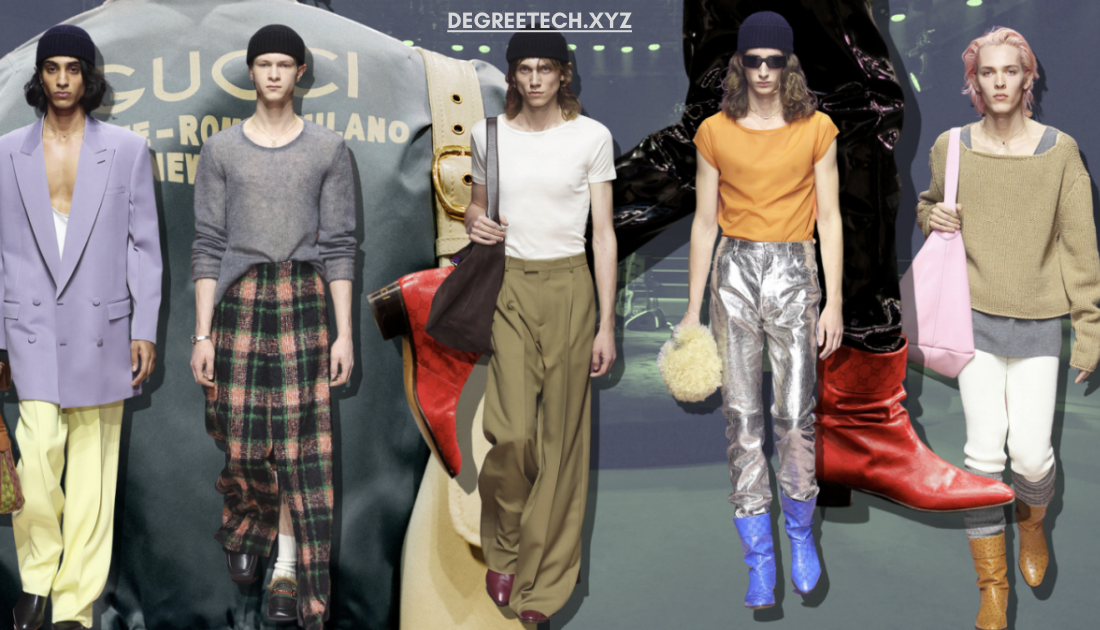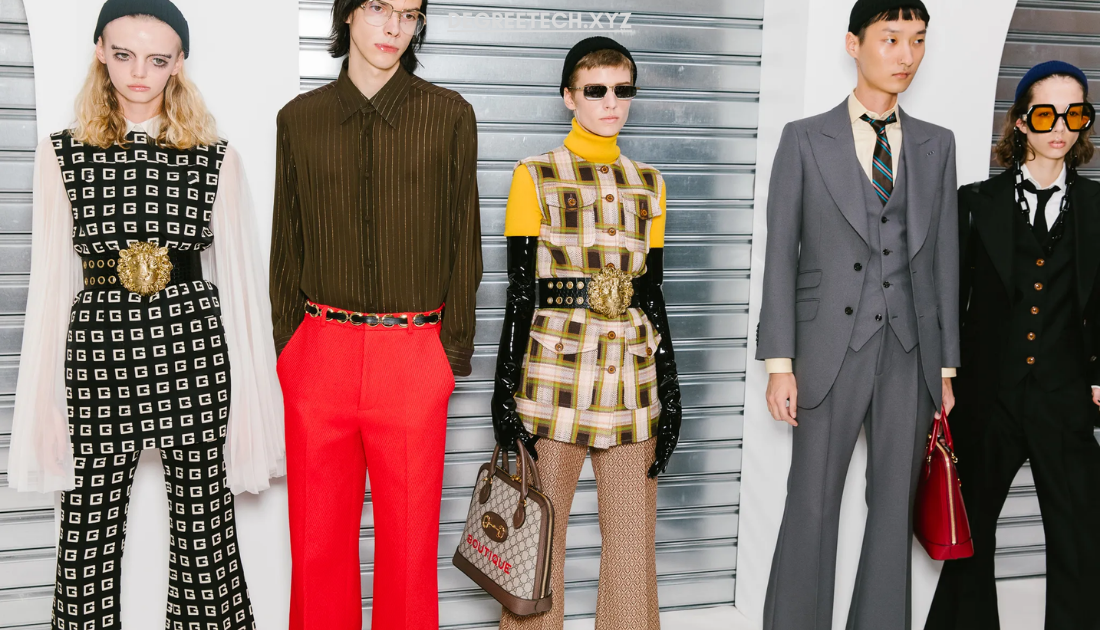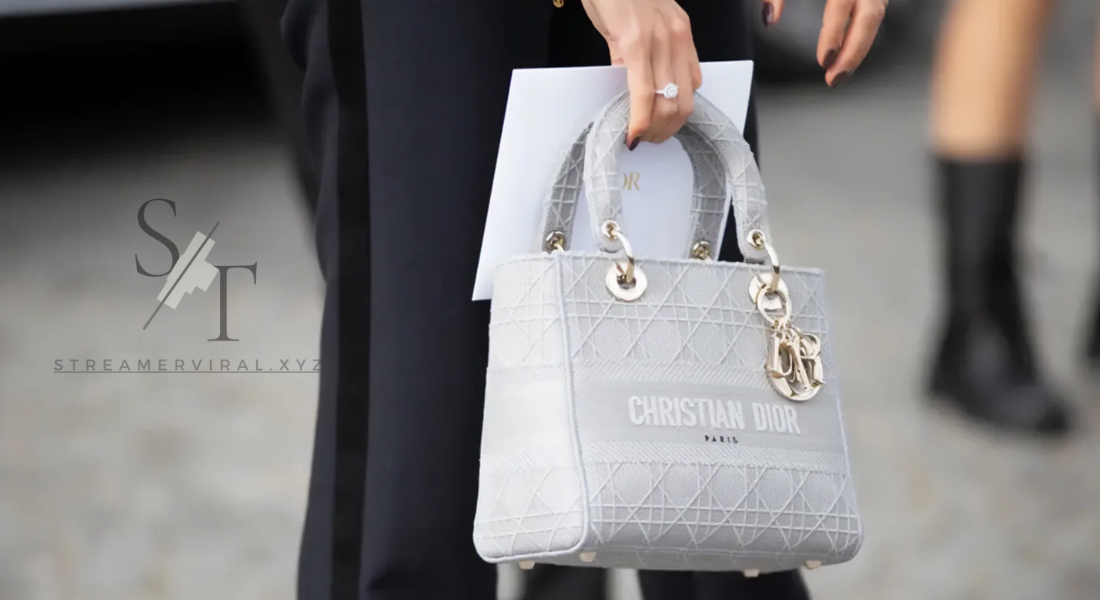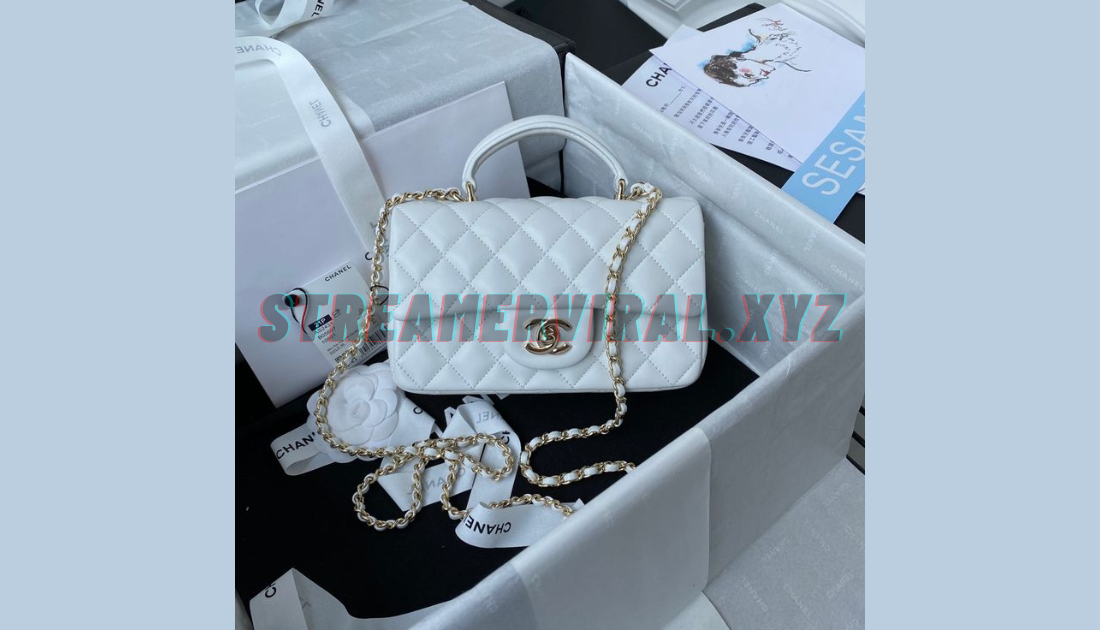Every year, Gucci Fashion Week dazzles the global stage with breathtaking designs, inspiring creativity, and daring trends. As one of the most anticipated events in the fashion industry, Gucci Fashion Week consistently brings innovative and bold statements that reflect the brand’s dedication to high fashion. For fashion enthusiasts and trendsetters alike, Gucci’s showcase is more than just a presentation—it’s a vision of the future, blending luxury with contemporary twists that captivate audiences worldwide.
The Allure of Gucci Fashion Week
Gucci Fashion Week has earned its place as a premier event in the fashion world. It offers a window into the brand’s unique aesthetic and its take on modern luxury. Unlike traditional fashion shows, Gucci brings more than just clothes to the runway; it offers a full experience that fuses style, art, and social commentary. Whether you’re attending the show in person or following it from afar, Gucci Fashion Week is a must-see.
Why has Gucci Fashion Week captivated so many? The answer lies in the brand’s ability to constantly reinvent itself. Every year, Gucci strikes a balance between honoring its storied past and pushing boundaries. This fusion of history and modernity creates an atmosphere where tradition meets innovation, making Gucci Fashion Week an event that both respects and reshapes the world of luxury fashion.
The Evolution of Gucci Fashion Week
Gucci’s journey in the world of fashion began in 1921 with Guccio Gucci’s leather goods store in Florence, Italy. The brand quickly became known for its quality and craftsmanship. Over the decades, it evolved into one of the most recognizable names in fashion. By the late 20th century, Gucci had established itself as a symbol of luxury, with its items becoming status symbols.
Gucci Fashion Week, which now takes place in major cities like Milan and Paris, reflects this evolution. The event showcases collections that embody Gucci’s heritage while embracing current trends and social movements. With creative directors like Tom Ford, Frida Giannini, and currently Alessandro Michele, each era of Gucci Fashion Week has brought fresh perspectives. Michele, in particular, has emphasized themes of inclusivity, self-expression, and gender fluidity, transforming Gucci Fashion Week into a powerful platform for cultural dialogue.
The Themes of Gucci Fashion Week
Gucci Fashion Week is known for its thought-provoking themes. Under Alessandro Michele’s direction, recent shows have explored concepts such as identity, nostalgia, and non-conformity. Gucci’s designs often challenge societal norms, presenting fashion as a means of self-expression. This approach resonates with diverse audiences and has become a hallmark of the brand.
For example, the 2023 Gucci Fashion Week collection highlighted vintage aesthetics fused with futuristic elements, celebrating individuality in an increasingly digital world. Michele’s designs included oversized sunglasses, vibrant colors, and eclectic prints, all paying homage to the styles of the 1970s while remaining distinctly modern. Through these themes, Gucci has redefined fashion as not just clothing but as a canvas for personal storytelling.
This commitment to meaningful themes sets Gucci apart. Each piece on the runway reflects an idea, a feeling, or a commentary. This year’s theme, anticipated by many, focuses on “Rebirth and Renewal,” addressing the shifts in fashion and society as we move forward. By aligning with contemporary issues, Gucci’s themes allow audiences to see fashion as a mirror of the times.

Designs That Define Gucci Fashion Week
Gucci Fashion Week is famous for its diverse and imaginative designs. From sleek silhouettes to eccentric patterns, each show unveils a range of styles that push boundaries. Michele’s collections often feature a blend of vintage inspirations and avant-garde designs, creating looks that are both nostalgic and forward-thinking.
One notable design trend seen at recent Gucci Fashion Week events is the use of contrasting elements. For example, the pairing of formal wear with sports-inspired details reflects a trend toward hybrid styles. This fusion creates a unique visual effect that is both sophisticated and edgy. Gucci has also embraced maximalism, featuring bold prints, oversized accessories, and layers that create dramatic, eye-catching outfits.
Additionally, Gucci’s use of color has become iconic. Michele favors a palette that includes deep greens, rich reds, and vibrant blues, along with pastels that add a whimsical touch. These colors are used strategically to evoke certain moods or themes, enhancing the storytelling aspect of each collection. By combining distinct elements, Gucci produces designs that make a statement both on and off the runway.
Key Moments in Gucci Fashion Week History
Over the years, Gucci Fashion Week has produced unforgettable moments that have shaped the brand’s identity. In 1995, Tom Ford’s collection redefined luxury with sleek, provocative designs, bringing Gucci back into the spotlight. This era marked a shift for Gucci, from a traditional leather goods brand to a major player in high fashion.
Fast forward to the 2017 show, when Alessandro Michele made headlines by sending models down the runway in matching floral bodysuits and mask-like headpieces. The unconventional styling captured audiences’ imaginations, establishing Michele’s unique vision for Gucci. In 2019, Michele’s collection challenged traditional beauty standards, with models showcasing makeup, hairstyles, and accessories that defied norms.
Most recently, the 2022 Gucci Fashion Week took place in Milan’s historic Brera district. Models walked among art installations, surrounded by sculptures and vintage furniture. The setting highlighted Gucci’s commitment to blending fashion with art, making the runway a true cultural event. Each moment in Gucci Fashion Week history contributes to the brand’s legacy, leaving a lasting impact on fashion and culture alike.
Gucci Fashion Week and Celebrity Influence
Celebrity presence at Gucci Fashion Week elevates the event’s profile, attracting global attention. Stars such as Harry Styles, Rihanna, and Dakota Johnson have all attended Gucci shows, often wearing exclusive designs that set trends in the fashion world. Celebrity appearances create buzz around the collections, and their fashion choices influence fans worldwide.
For instance, when Jared Leto appeared at Gucci Fashion Week in a velvet suit adorned with embroidered details, it instantly sparked a trend for embroidered menswear. Celebrities not only showcase Gucci’s designs but also help solidify its relevance across various demographics. By aligning with influential figures, Gucci reinforces its brand identity and reaches a broader audience.
The Impact of Gucci Fashion Week on Trends
Gucci Fashion Week is a powerful trendsetter. Each year, designers and retailers take note of Gucci’s collections, often incorporating elements into mainstream fashion. This influence extends beyond clothing to accessories, hairstyles, and even interior design. Trends like oversized silhouettes, bold patterns, and vintage-inspired accessories have found their way into everyday fashion, thanks to Gucci’s visionary approach.
Gucci’s influence on trends can be seen in the popularity of the “ugly-chic” aesthetic, which combines unconventional pieces with high-fashion elements. Items like chunky sneakers, oversized sunglasses, and logo-heavy apparel have become trendy, reflecting the brand’s impact on consumer preferences. Gucci Fashion Week not only introduces new styles but also redefines what’s considered stylish, encouraging fashion lovers to embrace their individuality.
How to Experience Gucci Fashion Week
For those who wish to witness Gucci Fashion Week firsthand, attending the event is a dream come true. However, due to its exclusive nature, attending can be challenging. Fortunately, Gucci provides live-streaming options, allowing fans worldwide to enjoy the experience from the comfort of their homes. Watching online still captures the magic of the show, complete with high-quality visuals and behind-the-scenes insights.
If attending in person, expect an immersive experience. Gucci’s events are known for their captivating settings, often held in historic or artistically significant locations. The atmosphere is electric, filled with the excitement of seeing fashion history unfold. Many attendees describe Gucci Fashion Week as a surreal experience, where art and fashion blend seamlessly.
Final Thoughts: Gucci Fashion Week as a Cultural Phenomenon
Gucci Fashion Week is more than a fashion event—it’s a cultural phenomenon. The show not only introduces new styles but also tells stories, challenges norms, and inspires fans worldwide. With themes that reflect societal shifts and designs that push creative boundaries, Gucci Fashion Week sets the standard for luxury fashion.
As we look forward to future collections, one thing is certain: Gucci Fashion Week will continue to captivate and inspire. It’s a celebration of creativity, a statement of luxury, and a testament to the power of fashion as an art form.



